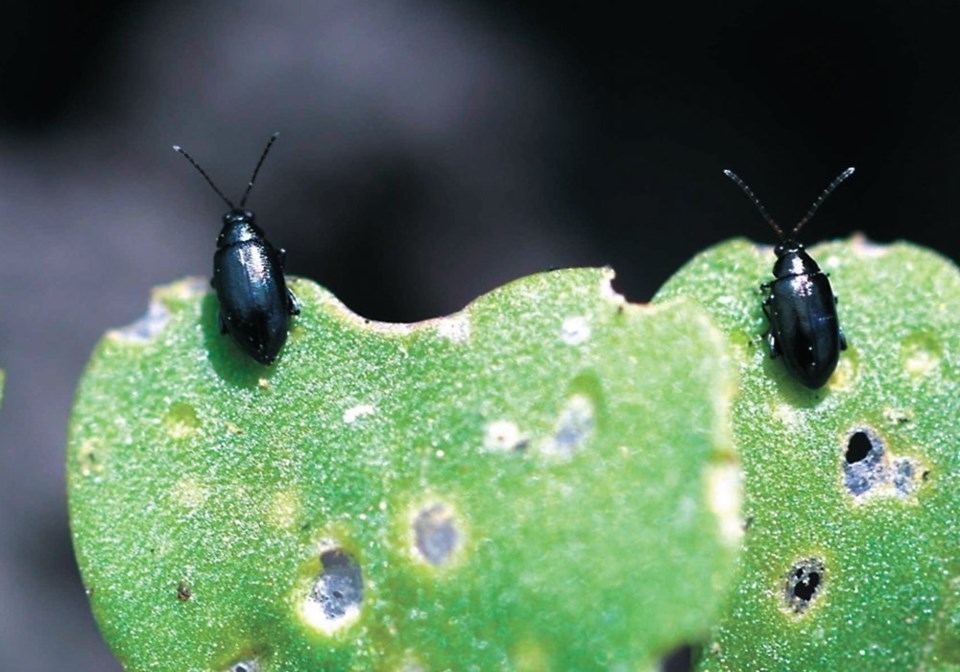WINNIPEG (MarketsFarm) — Delayed spring planting in some regions of Saskatchewan has opened the door to infestations of flea beetles, according to James Tansey, Saskatchewan pest management specialist.
Tansey said canola crops planted later than normal are suffering from flea beetles. However, extremely late-seeded canola has been relatively free from beetles because infestation depends on the development stage of the crop.
“Crops in that static state can be pretty vulnerable to flea beetle feeding,” Tansey said, noting that once canola reaches the four-leaf stage it becomes tolerant of the pests.
Saskatchewan’s northeast around Tisdale has been particularly hard hit, with farmers spraying multiple times in an effort to control the flea beetles, he said.
All regions of Saskatchewan have reported flea beetles, but the northeast and southwest are reporting the highest levels.
Tansey said two varieties of flea beetles, the striped and crucifer, are at work this year. The males of both varieties produce pheromones attracting other flea beetles to feed and mate. In turn, that creates areas of localized damage.
In addition, canola through hydrolysis produces allyi isothiocyanate (AITC), which also attracts flea beetles. Tansey said AITC normally acts as a defensive substance that’s effective against most insects, but not flea beetles. He said there have been high levels of AITC this year, which helped to intensify flea beetle gatherings.




